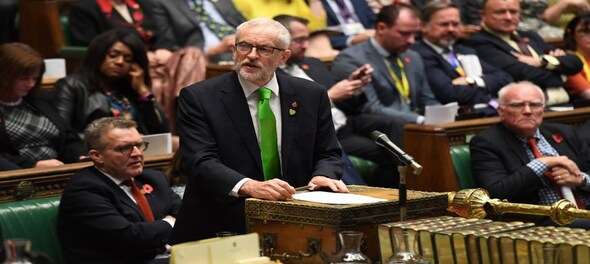
If there’s a skill the British excel in, it’s walking the diplomatic tightrope. That skill was on display again through the debate over the safety of protestors and media freedom held in the British parliament Monday evening through the response to the debate from the minister for South Asia Nigel Adams.
The UK government has an agenda to protect with India through securing a new trade deal, that it will want delivered soon enough through Prime Minister Boris Johnson’s expected visit to India soon this year. And it has a lobby it must honour, and its own interests to uphold by championing human rights. The tightrope was stretched Monday evening by keeping both the Indian government and its critics happy through the debate.
That debate, it has to be said, was not quite some parliamentary debate. A bunch of about a dozen MPs sat in a room adjacent to the main parliament building airing their views. Some others joined online.
Among those present all but one—Conservative MP Theresa Villiers—were critical of the Indian government; some close to abusive. That didn’t make it an opinion poll among those present. Given that about 36 MPs had signed the petition that led to the debate, no one was surprised that about half of them should actually turn up to speak as they signed.
They had their reasons, along some expected lines. First, constituents’ pressure. The petition did not draw 100,000 plus signatures spontaneously. Lobbying groups were at work, and that meant lobbying MPs in targeted areas. In a country where many MPs come into parliament with a majority running into just hundreds of votes (one was elected by a margin of two votes), MPs are ever ready to be persuaded by the interests of just a few constituents. It could never be difficult to persuade any MP that today’s signature is tomorrow’s vote.
Add to these some Pakistani origin MPs who spoke in a language that appeared remarkably coincidental to that spoken by the Pakistani high commission in London. So they held forth on Kashmir, on minority rights. A few others ride along with any human rights bandwagon. And a few others still have made it their career to abuse the Indian government; only the content of the abuse changes.
This last lobby has found a leader by the way of Jeremy Corbyn, former leader of the Labour party who led the party to a historic defeat in the last election. He found some strange things to say about the Indian government.
Corbyn said the National Union of Journalists in the UK had expressed concern Indian media have been “prevented from reporting on this issue.” It appears to have gone unnoticed by Corbyn that the farm protests have not gone unreported. But he went on to add: “Most of the British media have barely reported on it.” The Indian government, he suggested had not just stopped Indian media from reporting, but the British media as well. The Indian government might just be pleased to plead guilty to such influence. No one but Corbyn seems to believe such to be the case.
Devious Draft
The petition itself was deviously drafted. It spoke of the safety of protestors and the right to report freely. Not a word in it on the farm laws. It was figured, correctly, that MPs, and certainly the UK government, would speak up on a rights issue, and not on the farm laws themselves. And so it turned out. On the back of these issues, many MPs spoke up on the farm laws, making this a debate substantially on the farm laws, even when not listed to so be.
In the end minister Nigel Adams walked the tightrope over that split. He said the UK government believes that while the agricultural policy is a domestic matter for the Indian government, the UK government believes that freedom of speech, internet freedom and the right to peaceful protest are vital to any democracy. He said, “we look to the Indian Government to uphold the freedoms and rights guaranteed to the Indian people by the constitution and by the international instruments to which India is a party.” Concerns over these had been raised and will continue to be, he told MPs.
On that record, he offered a pat on his own back. India has a “vibrant media scene” that the UK government has worked to support through the Chevening Scholarships, he said. Last year “we supported the Thomson Reuters Foundation to run workshops for Indian journalists to help them report on human rights issues.” Some things good in the Indian media have had British blessing, some things bad, the Indian government hand.
Through the debate, some issues of concern were raised that have been raised strongly within India as well. The Indian government needs to get those right for its own sake, and for the sake of its own people, not for the sake of what some British MPs may say.
—London Eye is a weekly column by CNBC-TV18’s Sanjay Suri, which gives a peek at business-as-unusual from London and around.
Read his columns here
(Edited by : Ajay Vaishnav)
Check out our in-depth Market Coverage, Business News & get real-time Stock Market Updates on CNBC-TV18. Also, Watch our channels CNBC-TV18, CNBC Awaaz and CNBC Bajar Live on-the-go!


BJP's Hindi heartland dominance faces test in phase 3 polls
May 2, 2024 9:14 PM
Lok Sabha Election: Re-elections at a Ajmer booth after presiding officer misplaces register of voters
May 2, 2024 4:54 PM

